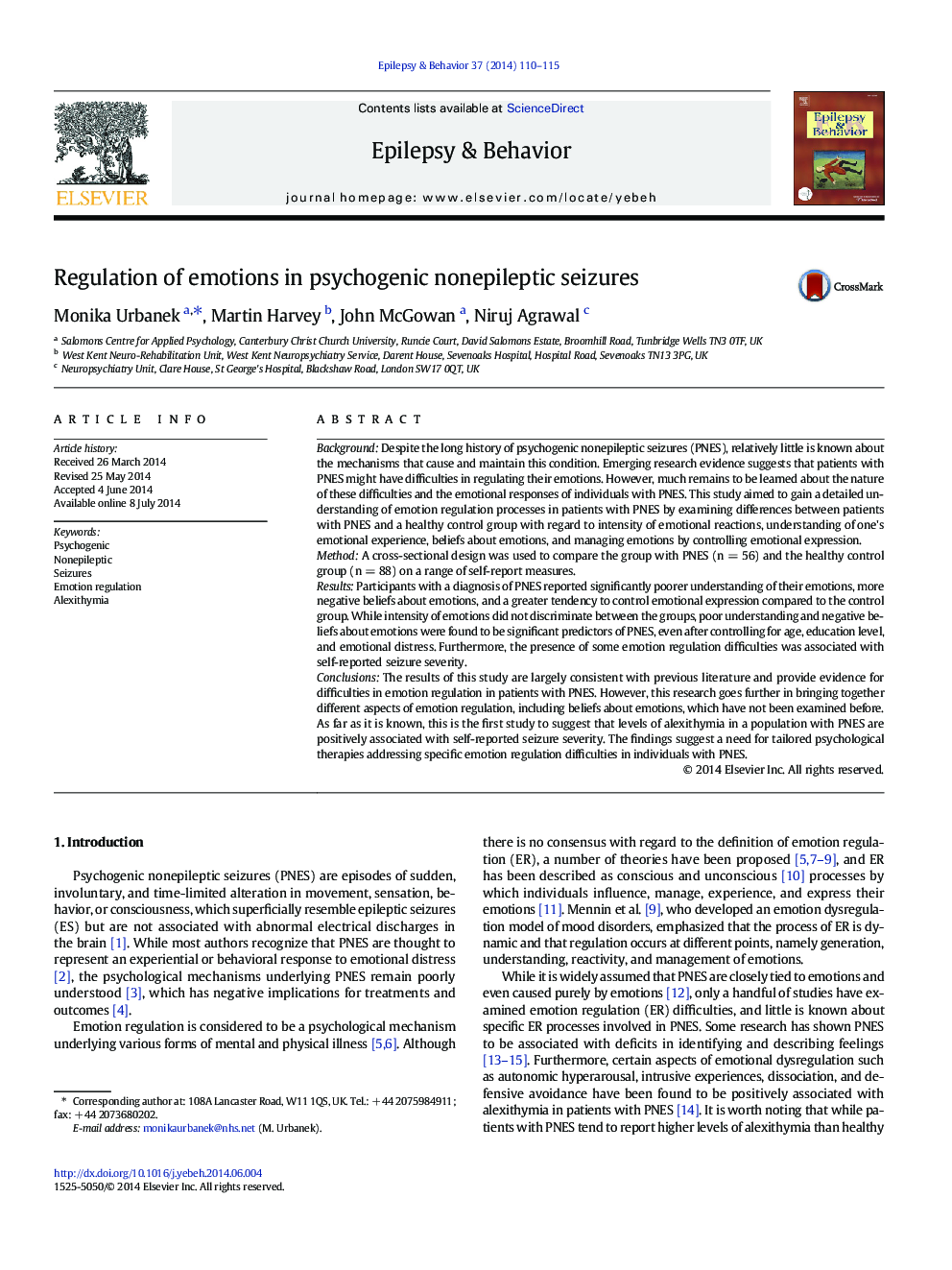| کد مقاله | کد نشریه | سال انتشار | مقاله انگلیسی | نسخه تمام متن |
|---|---|---|---|---|
| 6012189 | 1579852 | 2014 | 6 صفحه PDF | دانلود رایگان |
- Patients with PNES reported more emotion regulation difficulties than healthy controls.
- For alexithymia, 63% of patients with PNES scored above the clinical cutoff.
- Alexithymia and negative beliefs about emotions were significant predictors of PNES.
- Difficulties with emotion regulation were associated with anxiety and depression.
- Alexithymia and negative emotional schemas correlated with perceived seizure severity.
BackgroundDespite the long history of psychogenic nonepileptic seizures (PNES), relatively little is known about the mechanisms that cause and maintain this condition. Emerging research evidence suggests that patients with PNES might have difficulties in regulating their emotions. However, much remains to be learned about the nature of these difficulties and the emotional responses of individuals with PNES. This study aimed to gain a detailed understanding of emotion regulation processes in patients with PNES by examining differences between patients with PNES and a healthy control group with regard to intensity of emotional reactions, understanding of one's emotional experience, beliefs about emotions, and managing emotions by controlling emotional expression.MethodA cross-sectional design was used to compare the group with PNES (n = 56) and the healthy control group (n = 88) on a range of self-report measures.ResultsParticipants with a diagnosis of PNES reported significantly poorer understanding of their emotions, more negative beliefs about emotions, and a greater tendency to control emotional expression compared to the control group. While intensity of emotions did not discriminate between the groups, poor understanding and negative beliefs about emotions were found to be significant predictors of PNES, even after controlling for age, education level, and emotional distress. Furthermore, the presence of some emotion regulation difficulties was associated with self-reported seizure severity.ConclusionsThe results of this study are largely consistent with previous literature and provide evidence for difficulties in emotion regulation in patients with PNES. However, this research goes further in bringing together different aspects of emotion regulation, including beliefs about emotions, which have not been examined before. As far as it is known, this is the first study to suggest that levels of alexithymia in a population with PNES are positively associated with self-reported seizure severity. The findings suggest a need for tailored psychological therapies addressing specific emotion regulation difficulties in individuals with PNES.
Journal: Epilepsy & Behavior - Volume 37, August 2014, Pages 110-115
